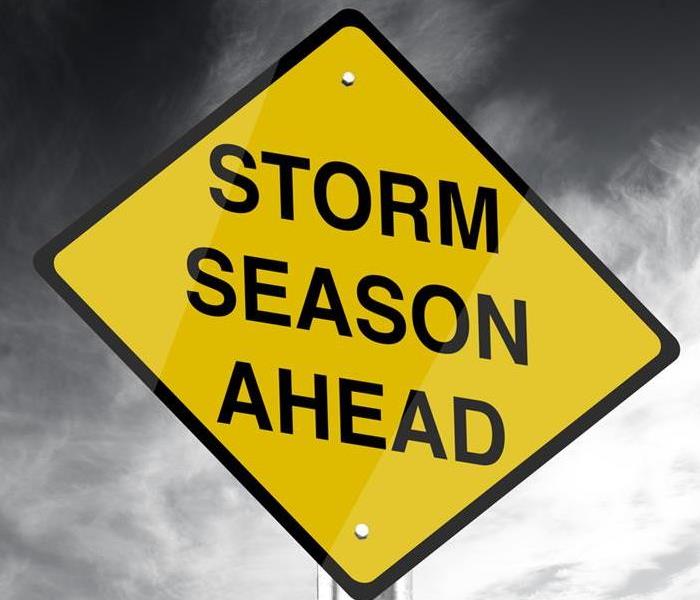Storm Season!
11/11/2019 (Permalink)
Even though we live a safe distance from the coast, there is a chance of a tropical storm or hurricane making its way to Columbia, SC. In the event that a powerful storm does make it to the Midlands of South Carolina, the last thing you want to think about is where you put that box of batteries or whether you have enough food for you and your family. The SERVPRO family recommends preparing for situations that might leave you without power, water and even shelter. To prep for any situation and the aftermath review these top tips:
- Put Together an Emergency Kit
Evacuation orders can be issued at any time - If you’re required or even voluntarily choose to leave your home in a hurry, you'll want some necessities handy. Keep the following supplies, recommended by FEMA, in a portable container in the area of your house where you'll take shelter:
- Three days' worth of food (nonperishable)
- Water (at least a gallon per family member)
- Battery powered (or hand crank) flashlights and radio
- Extra batteries
- First aid kit
- Whistle to signal for help
- Trash bags and duct tape, along with a dust mask
- Wrench or pliers to turn off utilities
- Manual can opener for food
- Regional maps
- Cell phone with chargers, inverter, or solar charger
- Moist towelettes and any personal sanitation or specific family needs, like pet supplies
- Prescription medication along with some generics in case they’re needed
(For additional recommendations, be sure to check out ready.gov)
We also suggest having smaller versions of your kit stocked with a few necessities like walking shoes, snacks, and a flashlight at work. In general, you'll also need enough cash on hand for five days of basic needs (gas and food), but any amount of ready money will help if ATMs are down.
Once you have your supplies together, it pays to go through them at least once a year too, to weed out expired food and batteries.
- Make an Action Plan
When things get chaotic, you want to make sure that every family member knows what to do. We suggest designating two meeting places (one close by and one a little further away in your neighborhood) and hang a map with the spots marked near your emergency kit.
It also pays to have important contacts written down if the power goes out and there's nowhere to charge your cell phone. Make a mini contact list — ready.gov has templates you can print out — with important numbers that everyone can stow in their wallets. Leave a copy in your emergency kit, too. Establish a plan for checking in with relatives in case local lines get jammed. Text messages will often go through, even when phone lines are clogged.
- Prep Your Home
If the power goes out and you have time, unplug appliances and electronics and turn off air conditioners, whether you stay or go. This will prevent damage when the electricity surges back on. Leave one lamp on so you'll know when the power's back.
How you store food can also make a difference when it comes to salvaging items afterwards, according to the FSIS. If there's a chance of flooding, be sure to store dry goods in waterproof containers high enough that they will be safely out of the way of contaminated water.
Grouping food together in the freezer can help it stay colder longer in the case of a power outage. If you have advanced warning, freeze any items you don't need right away, like leftovers, milk, and fresh meat and poultry to keep them at a safe temperature longer and stock your freezer with as much ice as you can fit. Coolers stocked with ice can also be helpful if the power is out for more than four hours.
Though you'll want to minimize the amount you open and close your refrigerator door once the power goes out, FSIS recommends keeping an appliance thermometer in your fridge and freezer to help you determine if food is safe to eat. The refrigerator temperature should be lower than 40 degrees Fahrenheit and the freezer temperature should be below zero degrees Fahrenheit.
After the Emergency
Coming home after a major disaster can be daunting. Call SERVPRO of Richland County to help you in the event your home is affected. NEVER enter a home that has been struck by heavy debris or fallen trees.




 24/7 Emergency Service
24/7 Emergency Service
